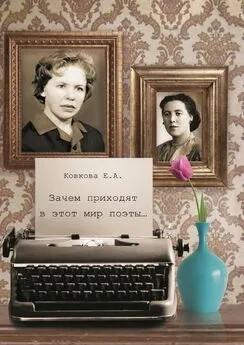Елена Миклашевская - Зачем им столько времен?
- Название:Зачем им столько времен?
- Автор:
- Жанр:
- Издательство:Литагент Ридеро
- Год:неизвестен
- ISBN:9785005033345
- Рейтинг:
- Избранное:Добавить в избранное
-
Отзывы:
-
Ваша оценка:
Елена Миклашевская - Зачем им столько времен? краткое содержание
Зачем им столько времен? - читать онлайн бесплатно ознакомительный отрывок
Интервал:
Закладка:
«I (be) sorry,» the father (say), «please, let one of your elephants come to my house for a short time.»
The cigar (fall) out of the man’s mouth.
«Let the elephant… I (not/understand) you…»
The father quickly (explain): his daughter (have) a strange illness. She (take) no interest in anything. Today she (ask) to see an elephant. It (be) really so impossible?»
The German (ask),
«How old your daughter (be)?»
«Six.»
«Hm… My Lisa (be) six, too. You (have) got a big house with very strong floor? My Tommy (be) very heavy.»
«Let’s go to my house and see everything,» Nadya’s father (answer).
…That night the elephant (walk) proudly in the middle of the street from the circus to Nadya’s house.
4
The little girl (wake) up very early the next day.
«The elephant (be) here?» she (ask).
«Yes,» her mother (answer).
«He (be) good?»
«Yes, very.»
The girl (have) her breakfast quickly, and they (go) to the dining room.
The elephant (be) very, very big, but Nadya (not/be) afraid. The German (come) to her and (say),
«Good morning, Miss. Don’t be afraid. Tommy (be) very good and he (like) children.»
«Hello, Tommy,» (say) the girl. The elephant (nod).
«He (understand) everything?»
«Absolutely everything, Miss. I (have) a daughter, too, and she (be) as big as you. Her name (be) Lisa. Tommy and she (be) very good friends. The best of friends.»
«Let’s have some tea, Tommy,» (say) Nadya.
«He (not/drink) tea, Miss. But he (like) sugar water and buns.»
When the elephant (eat) buns, his little eyes (become) smaller with pleasure. The girl (laugh).
When dinner time (come), the girl and the elephant (eat) together at the table. The girl (have) some soup, and Tommy (have) vegetables and salad. After dinner one of the father’s friends (come). When he (know) about the elephant, he (not/believe) it, but when he (see) Tommy, he (leave) very quickly.
Evening (come). It (be) time for the little girl to go to bed, but she (not/want) to leave the elephant. She (fall) asleep near him, and her father (take) her to her room.
The next morning the girl (wake) up and (ask) about the elephant. Her mother (say) that Tommy must be in the circus where he (work), and where Nadya can visit him when she (get) well.
Nadya (smile) and (say), «Tell Tommy that I (be) well now!»
Answer the questions:
1. What does the doctor say to Nadya’s mother?
2. What does the girl want one day? Why doesn’t she like the elephant that her father brings her?
3. Why does the father go to the circus?
4. Why does the owner of the circus understand Nadya’s father?
5. When does the elephant come to the girl’s house? What do they do together?
6. Where does the girl go to sleep that evening?
7. What does she ask to tell Tommy the next morning?
2. «The Wizard of Oz» by Frank Baum
Vocabulary: scarecrow – пугало, to be surprised – удивляться, to be tired – уставать, brains – мозги, straw – солома, lighted match – горящая спичка.
Tenses to use: Present Simple
Dorothy (be) on the way to the Emerald City. She (be) tired. She (sit) near the field. In the middle of the field she (see) a scarecrow. It (look) nice and funny.
«Good afternoon», she (hear) suddenly.
«Can you speak?» Dorothy (be) surprised because scarecrows (not/speak) in Kansas.
«Not very well», (answer) the Scarecrow. «Who you (be)?»
«I (be) Dorothy. I (want) to go back home, but I (not/know) the way. I (want) to ask the Wizard of Oz for help.»
«Where the Emerald City (be) and who the Wizard (be)? I don’t know anything because I (have) only straw in my head. I (want) to have brains very much. You (think) the Wizard can help me?»
Dorothy (be) very sorry for the Scarecrow.
«Please, come with me», she (say).
Dorothy (help) the Scarecrow with his first steps and now they (be) on their way to the Emerald City. The Scarecrow (carry) Dorothy’s basket.
«I (be) never tired», he (say). «I (not/eat), (drink) or (sleep). There (be) only one thing I (be) afraid of».
«What it (be)?» asked Dorothy.
«It (be) a lighted match», (answer) the Scarecrow.
Answer the questions:
1. Where does Dorothy go? What does she want to do?
2. Why does she sit near the field? What does she see in the middle of the field?
3. What does the Scarecrow want and why?
4. Why does the Scarecrow carry Dorothy’s basket?
3. «The Adventures of Tom Sawyer» by Mark Twain
Vocabulary: dark – темный, easy – легкий, turn – зд. превращаться, pipe – трубка.
Tenses to use: Present Simple, Present Continuous*
It (be) summer. There (be) no school. Tom (not/want) to think about Muff Potter, but it (not/be) easy. He (see) his face in the dark and can’t sleep.
One summer day Tom and Joe (be) by the Mississippi River. They (watch) the boats and (talk). They (talk) about Jackson Island. They (want) to go and live there.
The next morning they (be) on the island. Tom, Huck and Joe (swim), (play), (fish) by the river.
In the evening Huck (take) his pipe and (begin) to smoke.
«Can we smoke, too?» (ask) Tom, «I (want) to learn.»
So, now the three boys (sit) by the river. They (smoke). But after ten minutes the boys’ faces (turn) an interesting colour. They (go) «for a little walk» into the forest and (come) back an hour later.
After that they (not/smoke) their pipes again.
________________
* Жирным шрифтом выделено время, встречающееся в упражнениях впервые.
Answer the questions:
1. What does Tom think about all the time? Why can’t he sleep?
2. What are the boys doing by the river? What are they talking about?
4. What do they do when they get to the island? What do they do in the evening?
6. Where do the boys go after they smoke their pipes?
4. «The Adventures of Tom Sawyer» by Mark Twain
Vocabulary: dig – копать, treasure – сокровище, robber – грабитель, upstairs – наверху, downstairs – внизу, hill – гора.
Tenses to use: Present Simple, Present Continuous
There (be) a time in every boy’s life when he (want) to go and dig for treasure. And this time (come) to Tom. So, one hot summer day he (go) to Huck Finn. Huck (like) the idea of treasure.
«Where you (want) to dig?» he (ask).
«At the old dead tree on Cardiff Hill».
«Why you (think) the treasure (be) there?»
«The robbers (put) the treasure under old trees and then (not/come) back to take it.»
The boys (come) to the old tree tired and hot. But after two hours they (understand) that there (be) no treasure under the tree. They (stop). Tom (look) down at a small house at the foot of the hill.
«Hey, look!» he (say),» nobody (live) in that old house. Let’s go there. Old houses (be) always good for treasure».
The friends (come) into the house and (go) upstairs. Suddenly they (hear) the noise.
«Sh-h-h! Somebody (walk) downstairs,» (say) Tom. Through the holes in the floor they (see) two men. One of them (sit) on the floor. He (take) money out of the box. The second man (move) big stones from the floor.
Upstairs the two boys (watch) them.
…When night (come) the two men (carry) the money away.
Tom and Huck (not/go) after them. They (be) very afraid.
Answer the questions:
1. What idea does Tom have one day? Does Huck like it?
2. Where does Tom want to dig? Why does he think that the treasure is under the old tree?
3. What do the boys understand after two hours of digging?
4. Where do they decide to go next?
5. Who do they see in the old house?
6. What is each of the men doing?
7. What do the men do when the night comes?
8. Why do not the boys go after the men?
5. «Three Men in a Boat» by Jerome K. Jerome
Vocabulary: agree – соглашаться, scratch – чесать, hurry – торопиться, as if – как будто, shout – зд. вопль.
Tenses to use: Present Simple, Present Continuous
I (like) cats. This (be) the only thing I can’t agree with my dog, Montmorency. He (not/like) them. When I (meet) a cat, I (say) hello to it and (scratch) it between the ears. The cats (like) this and there (be) love and peace. When Montmorency (meet) a cat, everybody (know) about it and a lot of bad words (be) used.
At the moment we (go) from the river. We (see) a cat. It (walk) along the road. It (not/look) at us. Montmorency (give) a shout of real happiness and (start) to run after it. The cat (not/hurry). It (not/understand) that its life (be) in danger. It (look) at Montmorency as if it (say), «Yes? You (want) me?»
Montmorency (stop) suddenly. The cat (sit) in the middle of the road and (watch) him. They (not/speak) of course, but I imagine what they (say).
The Cat: «I (can) (do) anything for you?»
Montmorency: «No… no, thanks.»
The Cat: «You (be) sure that you (not/want) anything now?»
Montmorency: «No, thank you… no… very kind of you… Good morning.
The Cat: Good morning.
Then the cat (stand) up and (walk) away. Montmorency (walk) behind me, unhappy and afraid.
Answer the questions:
1. What does the narrator (автор) do when he sees a cat? What happens when Montmorency meets a cat?
2. Where are the narrator and Montmorency going now?
3. What does Montmorency start to do?
4. Is the cat afraid of Montmorancy? What does it do?
6. What do the cat and the dog do when their «talk» is over?
6. «Three Men in a Boat» by Jerome K. Jerome
Vocabulary: health – здоровье, illness (disease) – болезнь, sick – больной, to be cold with horror – похолодеть от ужаса
Tenses to use: Present Simple, Present Continuous, Past Simple
At the moment we (sit) in the room – me, George and Harris. We (talk) about our bad health.
I (know) that I (have) a bad heart. One day I (read) something in a magazine about the symptoms of a bad heart and I (understand) that I (have) all of them.
You see, every time I (read) about an illness, I (understand) that I (have) it.
Some time ago I (have) a little health problem and I (go) to the library to read about it. After some time I (turn) over the page and (begin) to read about another illness. I (not/remember) the name, but I (know) it (be) something terrible. I (read) about half of the page – and then I (know) that I (have) that disease too. Then I (begin) to turn more pages. I (have) all the diseases! I (go) back to the beginning of the book. I (start) with the letter «A» and (read) from «A» to «Z». I (find) that there (be) only one disease I (not/have).
I (be) cold with horror. When I (walk) into that reading room, I (be) a healthy, happy young man. When I (leave), I (be) an old sick man, close to death…
Answer the questions:
1. What are the friends talking about at the moment?
2. What does the narrator understand every time he reads about the illness?
3. Where did the narrator go when he had a little health problem?
4. What did he begin to do when he finished reading about his illness?
Читать дальшеИнтервал:
Закладка:
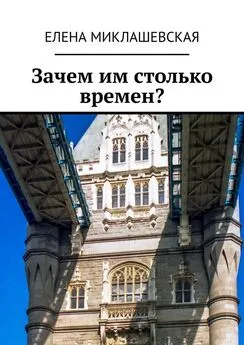

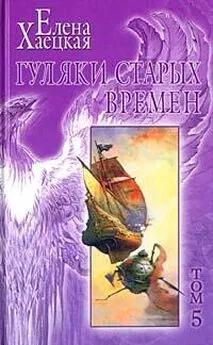
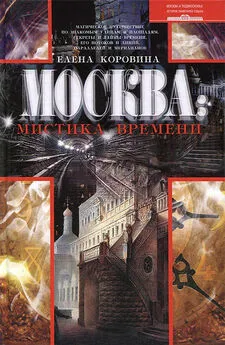
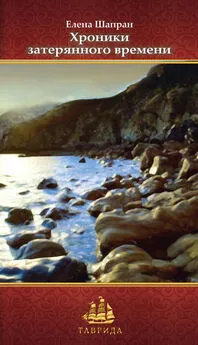
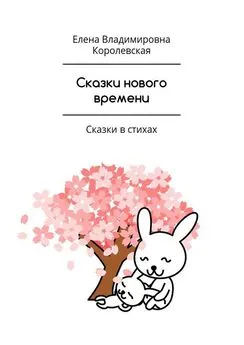
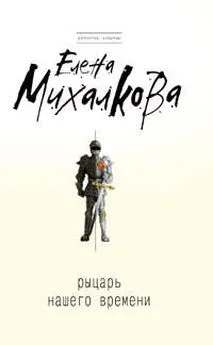
![Елена Гордина - Зачем ты это сделала? [litres с оптимизированной обложкой]](/books/1145711/elena-gordina-zachem-ty-eto-sdelala-litres-s-opti.webp)

